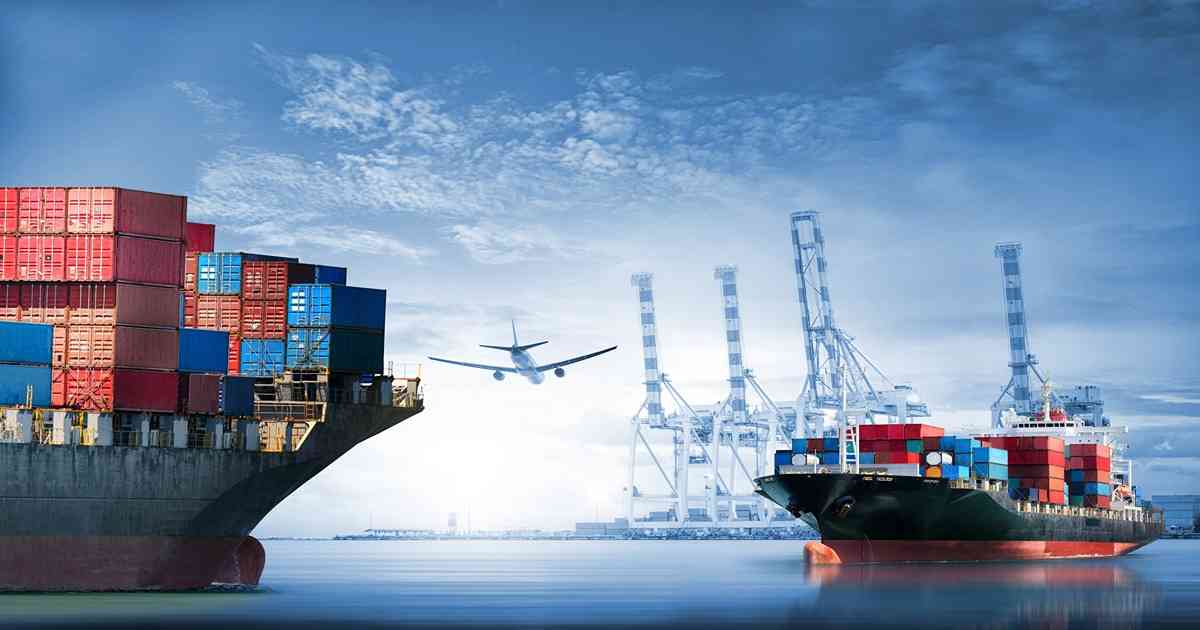
Warehousing and Distribution
Article | July 11, 2023
The rapid growth of e-commerce continues to create new challenges for retailers as they plan distribution strategies. One of those challenges is managing the high volume of returns. One in three shoppers returns items, and more than half read a company’s returns policy before making a purchase. Retailers lose $50 billion annually due to inefficiencies in processing returns, and distribution centers handling returns need 15% to 20% more space than a traditional facility.
Read More

Warehousing and Distribution
Article | June 27, 2023
We track our commitments and goals quarterly through the Schneider Sustainability Impact 2018 – 2020 (formerly called the Planet & Society barometer). The 2018 – 2020 Schneider Sustainability Impact ?shows our commitments by 2020, as well as our contribution to the United Nations Sustainable Development Goals to be achieved by governments, companies, and civil society by 2030.
For nearly 15 years we have been following a clear action plan with a dashboard called Schneider Sustainability Impact. It is based on our 2050 vision with tangible deliverables updated every three years. Our CEO and CFO announce our results on a quarterly basis, together with the company’s financial results.
Read More

Warehousing and Distribution
Article | June 16, 2023
Over the past decade, transportation and logistics have witnessed an immense transformation, from using automotive vehicles to drones and paper tags to advanced geotags. Also, the introduction of novel technologies and incorporation of innovative solutions such as artificial intelligence and blockchain has further reshaped the sector.
How is Rising Complexity Triggering the Adoption of Novel Technologies?
Today's supply chain is, in a word, complex. It has so many complexities, from ever-rising consumer expectations and disruptive events to globalized sourcing and omnichannel demand, that it is now being compared to a modern-day Gordian knot. With complexity comes ambiguity, particularly in the transportation and logistics industry.
For instance, importers are expected to find cost-effective and efficient ways to transport goods from manufacturing facilities, which are frequently located halfway around the world, to distribution centers and then, ultimately, into the hands of consumers. In addition, e-commerce has further added to the complexity by introducing new channels into the jumble along with the introduction of same-day or next-day delivery standards with higher transparency and tracking features by leading players such as eBay, Walmart, and Amazon Here are a few prominent technologies assisting logistics companies to counter these complexities.
Data Analytics
Big data analytics aids in the more accurate and efficient planning of operational processes, services, and strategies, allowing businesses to align with emerging consumer needs.
Artificial Intelligence (AI) and Machine Learning
AI and Machine Learning have become the most sought-after tech in the transportation food chain. It assists businesses in enhancing operational functionality, boosting productivity and speed, designing optimal transit networks and routes, and improving safety through predictive risk calculation and elimination.
The Internet of Things (IoT)
With the rising need for transparency and tracking of shipped goods, IoT is garnering immense popularity across the transportation and logistics sector. It enables businesses to monitor and track their goods in real-time with the help of geo-tagging, RFID tags, and GPS, resulting in fewer delays in deliveries.
Read More

Supply Chain
Article | April 26, 2023
Automated supply chain planning maximizes efficiency and helps achieve long-term success by addressing challenges, highlighting the benefits, and offering insights to optimize business performance.
Contents
1 Supply Chain Planning System Efficiency Maximization
2 Key Steps of Supply Chain Planning to Boost Efficiency
2.1 Implement Advanced Analytics Tools
2.2 Streamline Communication and Collaboration
2.3 Automate Processes
2.4 Consistency in Performance Improvement
3 Overcoming Major Challenges in the Process to Maximize Efficiency
3.1 Resistance to Change
3.2 Legacy Systems and Siloed Data
3.3 Inadequate Funding
4 Conclusion
1 Supply Chain Planning System Efficiency Maximization
To compete and succeed in an ongoing complex and dynamic global market, companies must maximize the efficiency of their supply chain planning systems, which help manage the flow of goods and services from suppliers to customers, optimize resources and information to meet customer demands and minimize costs and risks. An adequate supply chain planning system can increase customer satisfaction, profitability, agility, and risk management. Moreover, by reducing costs, increasing productivity, and enhancing responsiveness to market demands, maximizing efficiency can help businesses remain competitive. As a result, businesses can gain a substantial competitive edge and position the organization for long-term success by optimizing their supply chain planning systems.
2 Key Steps of Supply Chain Planning to Boost Efficiency
Businesses can significantly boost efficiency in their supply chain planning by implementing advanced analytics tools, streamlining communication and collaboration, automating processes, and ensuring consistency in performance improvement.
2.1 Implement Advanced Analytics Tools
Implementing advanced analytics in supply chain planning is key to improve supply chain efficiency. Advanced analytics tools, including demand forecasting, production planning and inventory management, can help organizations leverage large volumes of data to extract insights that enable better decision-making. The insights can be used to optimize production planning, reducing costs and increasing efficiency. In addition, it also enables businesses to detect and respond to supply chain disruptions on operations.
2.2 Streamline Communication and Collaboration
Managing and streamlining communication becomes essential for supply chain businesses, as it leads to greater agility and enables pipelines to adapt to changes in organizational structures. Leveraging cloud-based communication platforms, video conferencing, and collaboration tools enable real-time information sharing and collaboration across different teams and stakeholders. By enhancing communication and collaboration, businesses can better align their supply chain objectives, reduce communication gaps, and enhance decision-making.
2.3 Automate Processes
The integration of technologies such as order processing, inventory management, and shipment tracking under warehouse automation and logistics automation produces a vast amount of data, making it challenging for businesses to process data manually. To enhance efficiency, automating supply chain planning processes has become essential. Automating the process has eliminated multitasking, including managing goods flow, tracking road progress, and ensuring safe delivery, which was previously required in the manual process. By automating processes, supply chain management can be streamlined, leading to reduced lead times, minimized costs, and improved efficiency.
2.4 Consistency in Performance Improvement
Improving the supply chain is not a one-time fix, but a process that must be reviewed and optimized frequently. By implementing technology, businesses can continuously collect and analyze warehouse inventory management performance to identify areas for further efficiency gains and improved order accuracy. In addition, establishing a framework for continuous optimization involves regular performance reviews, feedback mechanisms, and benchmarking against industry best practices to help identify and address inefficiencies.
3 Overcoming Major Challenges in the Process to Maximize Efficiency
3.1 Resistance to Change
Supply chain planning systems are hindered by change resistance. Employees may resist change who are comfortable with the status quo and adopt new technologies and processes less often. Organizations need a comprehensive change management plan to address stakeholder engagement, communication, and training. Implementing a change management plan starts with identifying the key stakeholders and involving them in planning to gain their buy-in and support for the changes, implementing the process of the changes using different channels to reach all stakeholders and in addition, developing training programs to prepare employees for the changes and enable them to use new technologies and processes effectively.
3.2 Legacy Systems and Silos Data
Data silos and a lack of supply chain visibility are two problems that can arise when legacy systems and data are used. It also adds roadblocks in maximizing efficiency through supply chain planning software. Investing in older systems makes it challenging to gain a comprehensive view of the supply chain and informed decisions making. In addition, the systems are non-compatible with modern technology and data is stored in disconnected systems. With the help of an integrated system, all relevant information can be collected in one place, streamlining monitoring and decision-making. A data governance policy should be implemented to guarantee data quality and uniformity across all platforms. Data management, data storage, data sharing, regular monitoring and reporting on data quality are all essential components of this policy.
3.3 Inadequate Funding
Insufficient funding can affect supply chain planning system efficiency; with budget constraints, organizations may struggle to invest in new technologies, hire skilled workers, or improve processes. Thus, the supply chain planning system may become obsolete, increasing costs, lead times, and customer dissatisfaction. To overcome the challenge of inadequate funding in supply chain planning, organizations must prioritize funding and strategically allocate resources by identifying the areas that require the most investment. Exploring alternative funding sources, such as grants and partnerships, can supplement existing funding and enable organizations to invest in vital initiatives that may not have been possible with limited resources. In addition, cost-cutting measures, such as process optimization and automation, can help to stretch existing funds and boost productivity.
4 Conclusion
The supply chain planning system will continue to play a critical role in maximizing efficiency to revolutionize the supply chain professionals leverage emerging technologies such as AI, ML, and blockchain; understanding the process, identifying the challenges and overcoming them using the right strategies helps businesses in effective supply chain planning systems, gain a competitive advantage, improve supply chain performance and position themselves for long-term success. Furthermore, adopting a data-driven approach and a culture of continuous improvement in supply chain management planning can help organizations plan according to the future of supply chain and compete in the ever-changing global market.
Read More